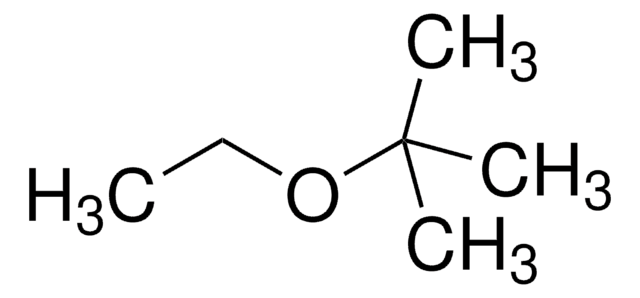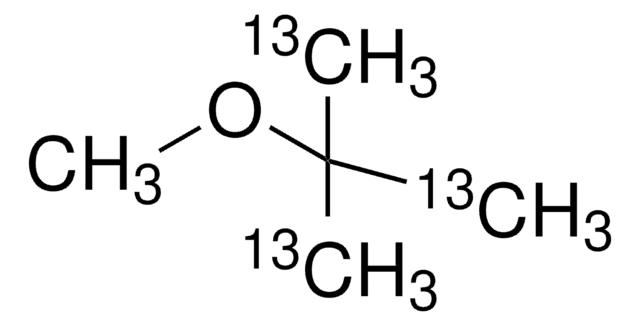50126
tert-Butyl methyl ether
suitable for HPLC, ≥99.8% (GC)
Synonym(s):
MTBE, Methyl tert-butyl ether
Select a Size
Select a Size
About This Item
Recommended Products
vapor density
3.1 (vs air)
Quality Level
Assay
≥99.8% (GC)
form
liquid
autoignition temp.
705 °F
shelf life
limited shelf life, expiry date on the label
expl. lim.
15.1 %
technique(s)
HPLC: suitable
impurities
≤0.05% water
evapn. residue
≤0.001%
Looking for similar products? Visit Product Comparison Guide
Signal Word
Danger
Hazard Statements
Precautionary Statements
Hazard Classifications
Flam. Liq. 2 - Skin Irrit. 2
Storage Class Code
3 - Flammable liquids
WGK
WGK 1
Flash Point(F)
-18.4 °F - closed cup
Flash Point(C)
-28 °C - closed cup
Choose from one of the most recent versions:
Certificates of Analysis (COA)
Sorry, we don't have COAs for this product available online at this time.
If you need assistance, please contact Customer Support.
Already Own This Product?
Find documentation for the products that you have recently purchased in the Document Library.
Our team of scientists has experience in all areas of research including Life Science, Material Science, Chemical Synthesis, Chromatography, Analytical and many others.
Contact Technical Service






